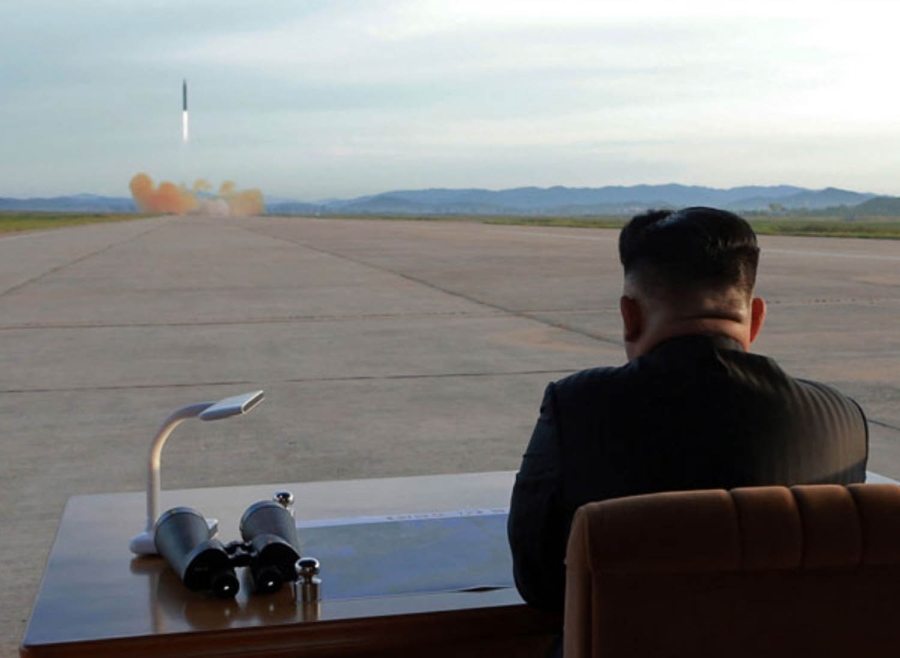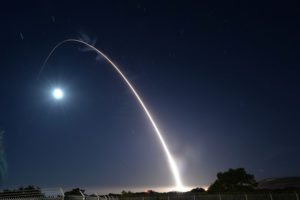
Why America’s Nuclear Arsenal Doesn’t Matter to North Korea
This week, President Trump took to twitter to remind Kim Jong Un of the size of America’s proverbial “nuclear button”:
North Korean Leader Kim Jong Un just stated that the “Nuclear Button is on his desk at all times.” Will someone from his depleted and food starved regime please inform him that I too have a Nuclear Button, but it is a much bigger & more powerful one than his, and my Button works!
— Donald J. Trump (@realDonaldTrump) January 3, 2018
This tweet is an obvious rattle of America’s nuclear sabre, an overwhelming force of thousands of stockpiled warheads capable of destroying North Korea hundreds of time over. The problem with this type of sabre rattling, aside from being dangerous due to its nuclear nature, is that it misses the point of the North Korean nuclear program, and dismisses the North Korean regime’s knowledge and perspective. Understanding this perspective is key to effectively influencing that regime.
North Korea is well aware of the American nuclear arsenal. The entire world is aware of America’s nuclear capabilities. But the size and reach of America’s nuclear arsenal did absolutely nothing to prevent North Korea’s development of nuclear weapons—because it doesn’t care. Similarly, it did nothing to prevent Iran’s development of a nuclear program. It did nothing to encourage Iran to surrender its program. Why would North Korea surrender the best bargaining chip it has for its own survival? North Korea knows that launching a nuclear attack will end its regime, so the only situation in it might launch a nuclear strike is if the survival of the regime is truly threatened. North Korea isn’t trying to win a war with its nukes—it’s trying to prevent one. Thus, the American nuclear arsenal simply doesn’t matter.
North Korea doesn’t have an interest in starting a nuclear war—or any war—because it knows that whether it’s a nuclear or conventional war, it will lose. It does have an interest in seeming scary and crazy enough to start a war. This ruse is intended to deter international actors from attempting to depose the regime or invade the country, making the cost of doing so appear extremely high. Indeed, North Korea discourages militarily action against it by raising the potential consequences of such action to the level of full scale war. So in any small military exchange, North Korea will disproportionately raise the stakes and hope the United States and its allies back down for fear of rising costs.
The North Korean ICBM is intended to raise the prospective costs of war, not win a nuclear exchange. There simply isn’t a plausible scenario in which North Korea makes a first nuclear strike against the U.S., South Korea, or Japan and survives retaliatory action, whether conventional or nuclear in response. North Korea has calculated that the United States values the survival of potentially millions of people over deposing the regime. For the Kim regime, it’s a good strategy that puts the United States in a difficult position: to attempt to eliminate the threat will invite the realization of the threat.
So where does this leave the president and his national security team?
First off, if the United States wants to pressure North Korea towards a goal, a certain amount of military pressure is appropriate. After all, what good is high stakes diplomacy without a means to enforce it?
Secondly, U.S. statements on the situation should be measured, calculated, and targeted for effect. Responding tit-for-tat to North Korean rhetoric on twitter is unproductive, risky, and won’t actually encourage the North Koreans denuclearize, per the stated goal of the administration.

A U.S. test launch of a Minuteman III ICBM in May 2017
The president’s statements about North Korea lend to unpredictability, which does not benefit a nuclear crisis. On the contrary, the president should be working to make the situation more predictable. Predictability will allow the Kim regime to understand the consequences of its actions, and direct it to make the choices that the international community is pressuring it to do. Thus, North Korea needs to be able to predict and ensure its own survival based on a choice to dismantle its nuclear program—and nuclear weapons must not be seen as the key to its survival. The president and his advisers should be looking to generate a number of options with predictable consequences that North Korea can choose from.
Now, you might say that predictability could involve the threat of force, but these threats should be made privately or in conjunction with our allies—not alone on the public stage where the Kim regime might be compelled to take action to preserve its credibility. Public threats prevent North Korea from saving face and encourage it to undertake dangerous behaviors.
Finally, if President Trump wants to encourage North Korea to make the right choices, he will need to continue the slow, steady diplomacy that’s needed to create a united international front against Kim Jong Un’s nuclear ambitions. This isn’t done on twitter, it’s not done by telling North Korea what is already obvious, and it isn’t done by name calling.





